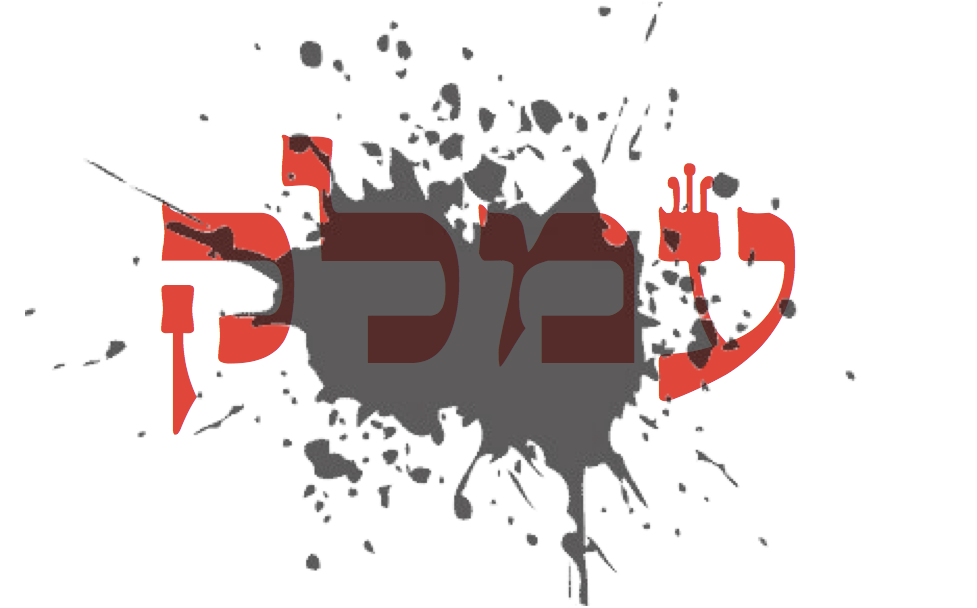| The Shabbat that begins tonight is known as Shabbat Zachor, and its special meaning involves one of the oddest paradoxes in the Torah. Shabbat Zachor, the "Sabbath of Remembrance," always falls on the Shabbat before Purim. Its name comes from a special additional Torah passage that is read in the morning service from Deuteronomy 25:17-19: |
Remember what Amalek did to you on your journey after you left Egypt—how, undeterred by fear of God, they surprised you on the march, when you were famished and weary, and cut down all the stragglers in your rear. Therefore, when Adonai your God grants you safety from all your enemies around you, in the land that Adonai your God is giving you as a hereditary portion, you shall blot out the memory of Amalek from under heaven. Do not forget!
It's helpful to understand the symbolic meaning of the nation called Amalek in this passage, and the relationship of Amalek to the holiday of Purim.
Later Jewish tradition imagined Amalek as the eternal enemy of Israel that would appear in various guises throughout history. In the book of Exodus, we are taught that "Adonai will have war with Amalek from generation to generation" (Exodus 17:16). Amalek is not just a nation that fought treacherously against Israel once-upon-a-time, during the travel through the wilderness. They are the embodiment of enmity against God that is unending. Amalek is the undying human capacity for evil.
Now, evil is a particularly difficult problem for Judaism as a strictly monotheistic tradition. If there is one God, who is the master and creator of everything, how can there be a separate power in the universe that is in opposition to God? The classical Jewish answer—that evil is not a separate force, but is only the shadow of God's absence—cannot answer our darkest questions adequately. How is it that deeply malevolent, actively destructive evil can exist in a universe that is ruled solely by a benevolent and all-powerful God?
This is not an idle or hypothetical question for Judaism and for Jews. The Jewish people, who most strenuously insist on God's unity, are also the people whose history most clearly declares the reality of evil. Throughout our generations, we have been victims of schemes and plots that originate in the darkest and most hateful recesses of the human psyche.
Haman, the villain of the Purim story, is viewed as the representative of Amalek in the time of the Persian Empire. He is known in the book of Esther as "Haman the Agagite," and so he bears the name of King Agag, the Amalekite ruler who was defeated by King Saul (I Samuel 15:7-9). The entire holiday of Purim can be viewed as a way to fulfill the commandment to remember to "blot out the memory of Amalek." We remember that the evil of Haman exists in the world—an evil that would wipe us out for no reason and without mercy—and then we blot that memory out with laughter, drink, joy and noisy groggers.
There is a tradition, on Purim, of writing the name of Amalek in chalk on the bottom of ones shoes. That way, as we parade around on the holiday, we are also wiping away the name with each festive footfall. Another tradition associated with destroying the name of Amalek is practiced by Jewish ritual scribes. A sofer will test his of her quill for writing a Torah scroll, a mezuzah or tefilin by first writing the name of Amalek and then crossing it out.
But why the paradox? If we should always remember Amalek, why should we also strive to forget? Why should we drive the name from memory? I believe the teaching to be a reflection of the paradox that evil itself represents in Jewish tradition.
We cannot deny evil. We may want to believe in a God who is present in all things—in our sorrow as much in our joy—but we cannot escape that we live in a universe that includes things that are beyond our ability to reconcile with God. Judaism is too realistic to just brush aside evil as a mere illusion. We are bound to remember it.
Yet, we also are given a tool to drive it away. Evil cannot be fought by filling our minds with equal measures of hatred and anger. When we try to fight evil with evil, we only add to the evil present in our world. We would only multiply the denial of God and God's Torah that Amalek represents. We must forever oppose evil, yes, but we also must have the courage to engage in constructive forgetfulness.
When we choose to live our lives with joy, despite evil, we help to destroy evil. When we know our hurtful past, and yet live as though it had no hold on us, we defeat it. On Purim, we are asked to behave (perhaps with the aid of a drink or two) as if there were no difference between "Cursed be Haman" and "Blessed be Mordechai." The idea is not to deny the existence of the evil represented by Haman the Agagite, but to defeat the power of evil by looking beyond it to the true power behind creation.
That is what we must remember. Remember to wipe out the memory of evil from your consciousness, and allow yourself to connect instead to the source of life.
Other Posts on This Topic:
Darkness
Tough Times
Ki Tetze: The Bird's Nest and the World Trade Center


 RSS Feed
RSS Feed
